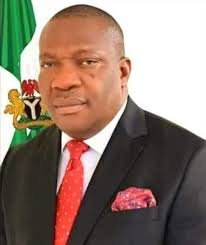Bill Sponsor: Hon. Anamero Dekeri. Bill Progress: First Reading.
In a significant move for local governance and representation in Edo State, the Constitution of the Federal Republic of Nigeria 1999 (Sixth Alteration) (Creation of Local Government Areas in Edo State) Bill, also known as HB. 2446, has recently been introduced in the Nigerian House of Representatives. Sponsored This legislative proposal aims to amend the Constitution to facilitate the creation of new Local Government Areas (LGAs) in the state.
Local Government Areas are crucial components of Nigeria’s administrative structure, serving as the third tier of government alongside the federal and state levels. They play an essential role in governance and local representation, directly impacting the lives of citizens by managing local affairs and providing essential services. Recognizing this significance, the introduction of a dedicated bill to create additional LGAs is a vital step towards enhancing local governance in Edo State, particularly as the state’s population continues to grow and urbanize.
The proposed bill intends to officially list the new LGAs in the First Schedule of the Nigerian Constitution. This inclusion is crucial, as it grants the new areas full recognition and enables them to access federal allocations, which are vital for their development and operational functionality. Without this constitutional amendment, any new LGAs would lack the legal framework to function effectively, ultimately hindering their ability to serve their communities adequately.
The introduction of HB. 2446 has already garnered attention within the political landscape of Nigeria, reflecting growing awareness of the need for local governance reforms. For many citizens, the creation of new LGAs in Edo State could lead to more tailored governance and localized service delivery, potentially addressing the unique challenges faced by different communities within the state. With a diverse population and varying needs across regions, increasing the number of LGAs could enhance the responsiveness of government to local issues.
As the bill progresses, it will likely spur discussions about the existing structure of local government in Nigeria and its implications for community engagement and development. Advocates for the bill argue that more LGAs would mean greater representation for minority groups and marginalized communities, ensuring their voices are heard in the development agenda. This perspective aligns with Nigeria’s broader goals of promoting inclusive governance that reflects the country’s demographic diversity.
Critics of increasing the number of LGAs often raise concerns about the financial implications. Each new LGA will require funding, and there is apprehension regarding whether such resources will be available without straining the existing budget. Sustainable financial planning will be vital to ensure that newly created LGAs can operate effectively from their inception. Hence, it is important for stakeholders, including state governors and local leaders, to collaborate in drawing up financial strategies that will support these new entities while minimizing any adverse fiscal impacts.
Moreover, the passage of the bill could stimulate discussions about local government elections, representation, and accountability. Empowering LGAs through more resources and legal recognition demands corresponding accountability mechanisms to ensure that elected officials deliver on their mandates. Transparency and accountability will be imperative to gain and maintain public trust in these new government structures.
The endorsement of HB. 2446 also speaks to the ongoing legislative commitment to decentralize power and enhance the administrative capacity of local governments across Nigeria. As it stands, the proposal adds to the narrative of constitutional reforms aimed at promoting good governance, transparency, and accessibility in public administration.
As the legislative process unfolds, the spotlight will now turn to various stakeholders, including the House of Representatives, the Senate, and state assemblies, to see how they will engage with this proposal. A passage of this bill would not only represent a historic alteration to the Nigerian Constitution but would also set a precedent for future local government reforms across the nation.
The success of HB. 2446 will depend on raising awareness among the citizens of Edo State about the implications of this legislative step. Community engagement will be crucial, as citizens must be informed and involved in the governance processes that affect their daily lives. Local awareness campaigns and dialogues can foster greater understanding and encourage active participation in local governance.
In conclusion, the Constitution of the Federal Republic of Nigeria 1999 (Sixth Alteration) (Creation of Local Government Areas in Edo State) Bill, 2025, marks a promising development in Nigeria’s legislative landscape. As it navigates through legislative scrutiny, much rests on collective efforts from lawmakers, state assemblies, and the citizens they represent. The outcome of this bill could reshape the dynamics of local governance in Edo State, potentially leading to a more engaged and empowered citizenry while enhancing service delivery and representation at the grassroots level. The road ahead will require thoughtful debates, robust planning, and an unwavering commitment to improving the lives of the people in Edo State.











